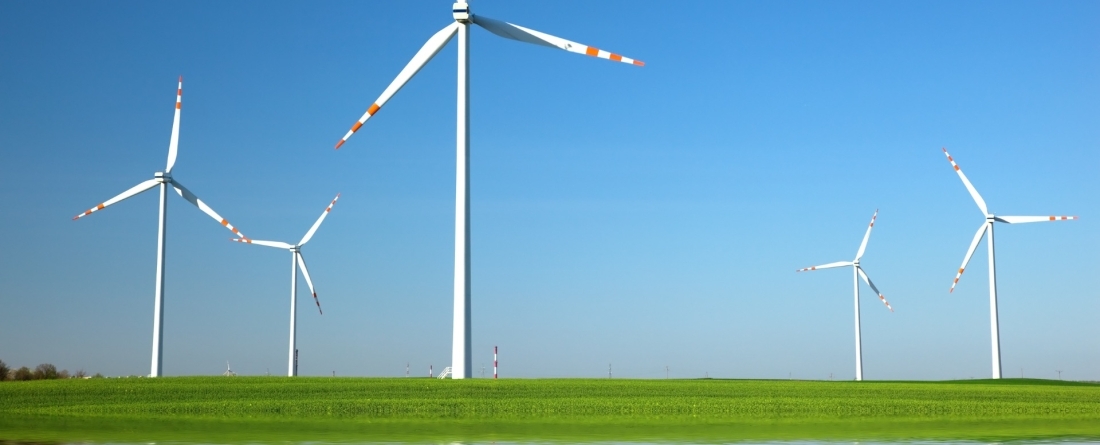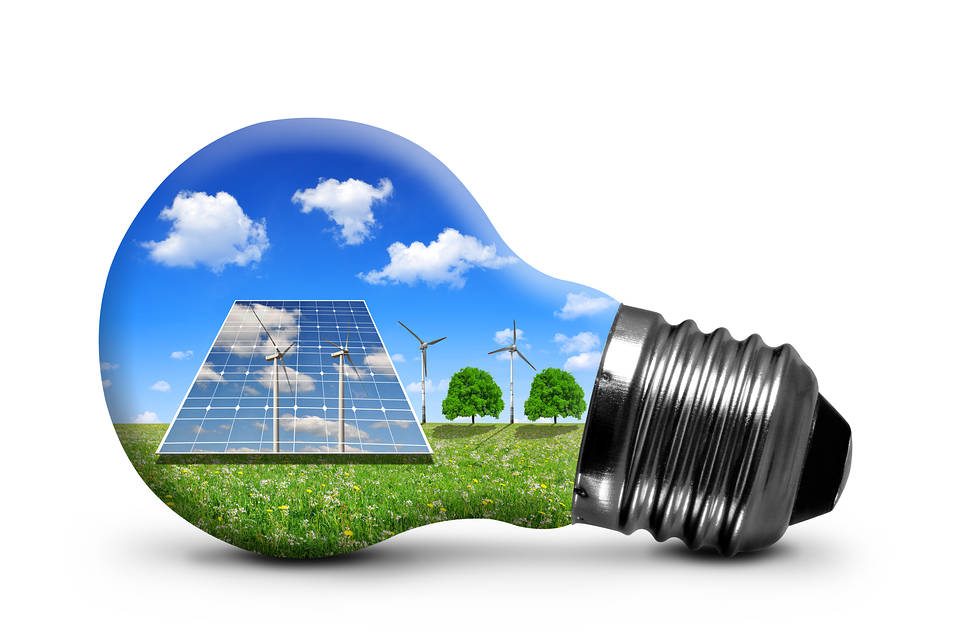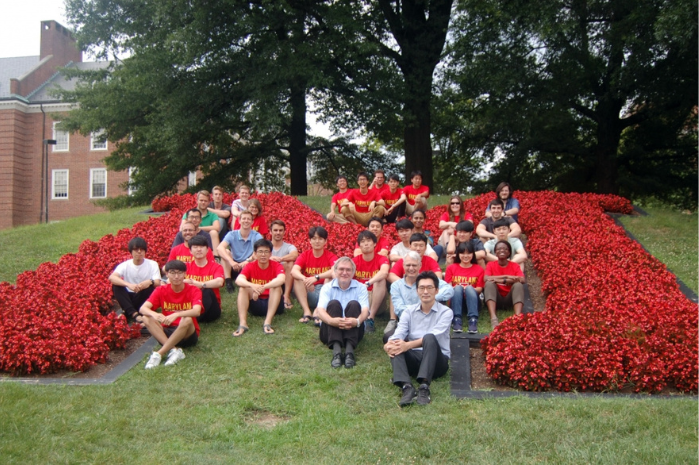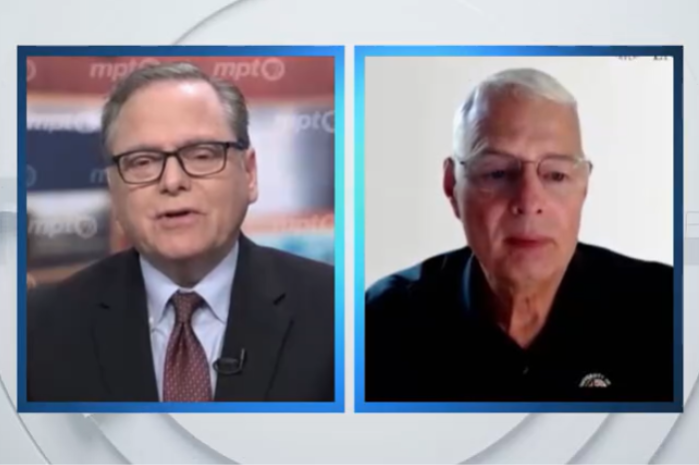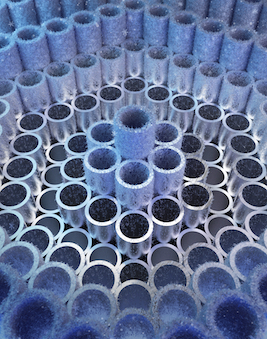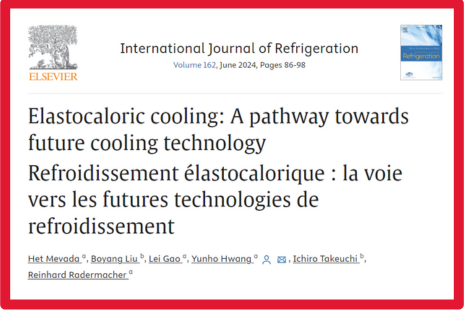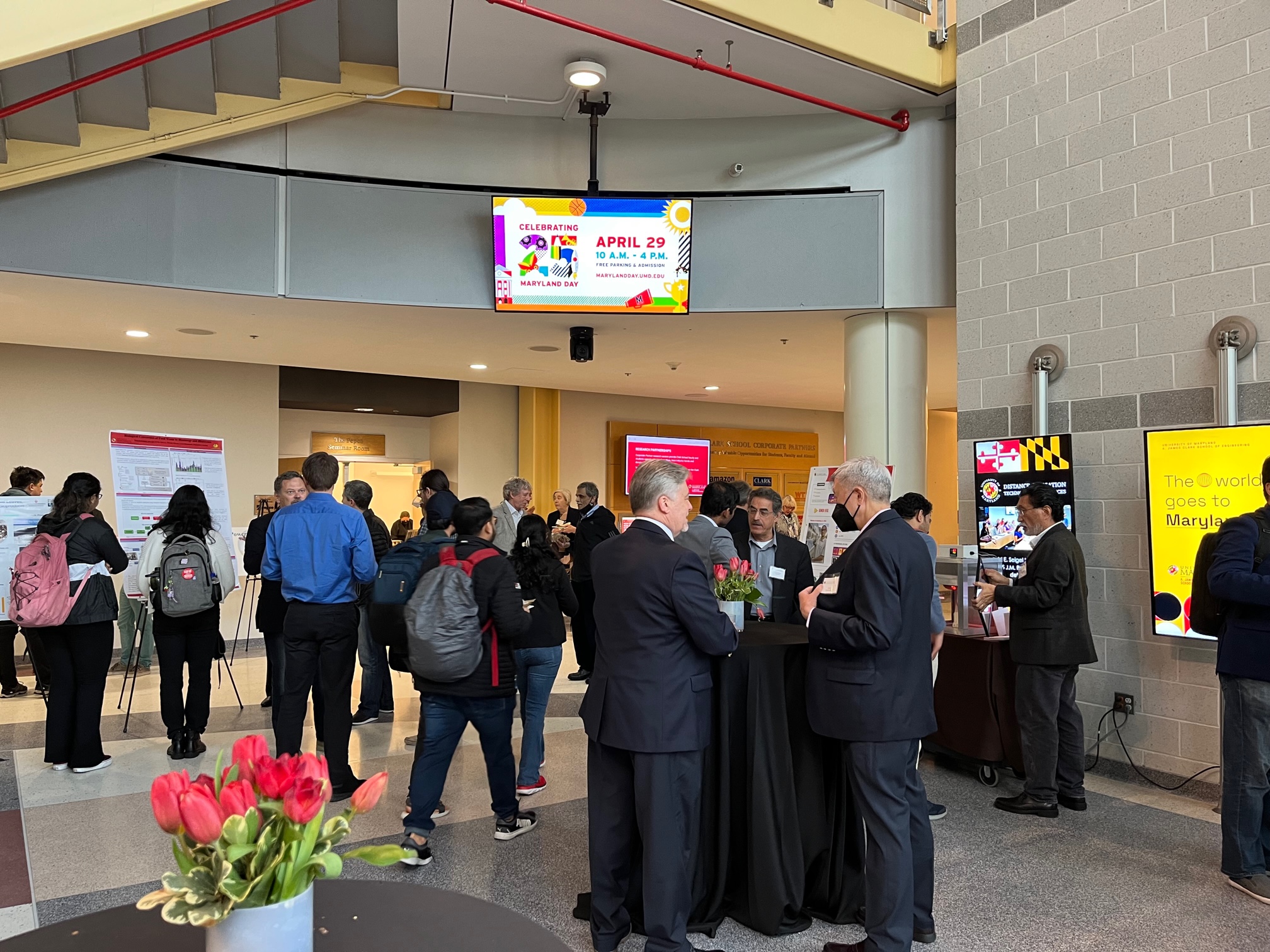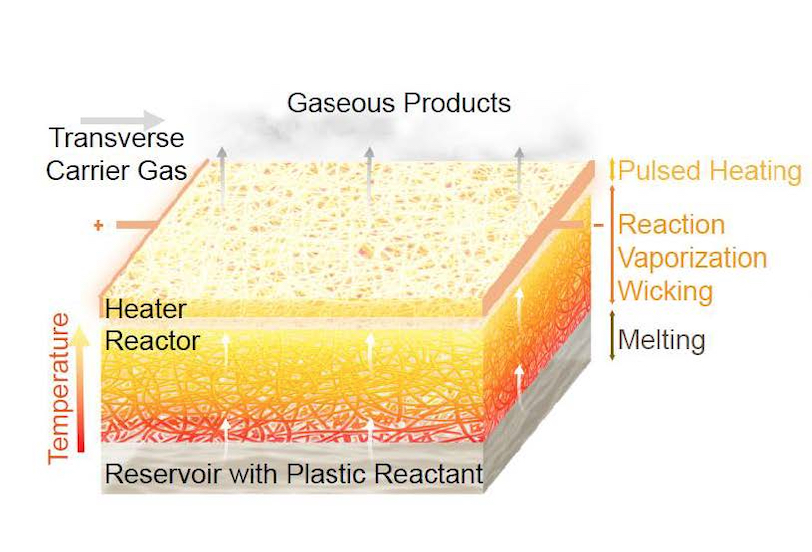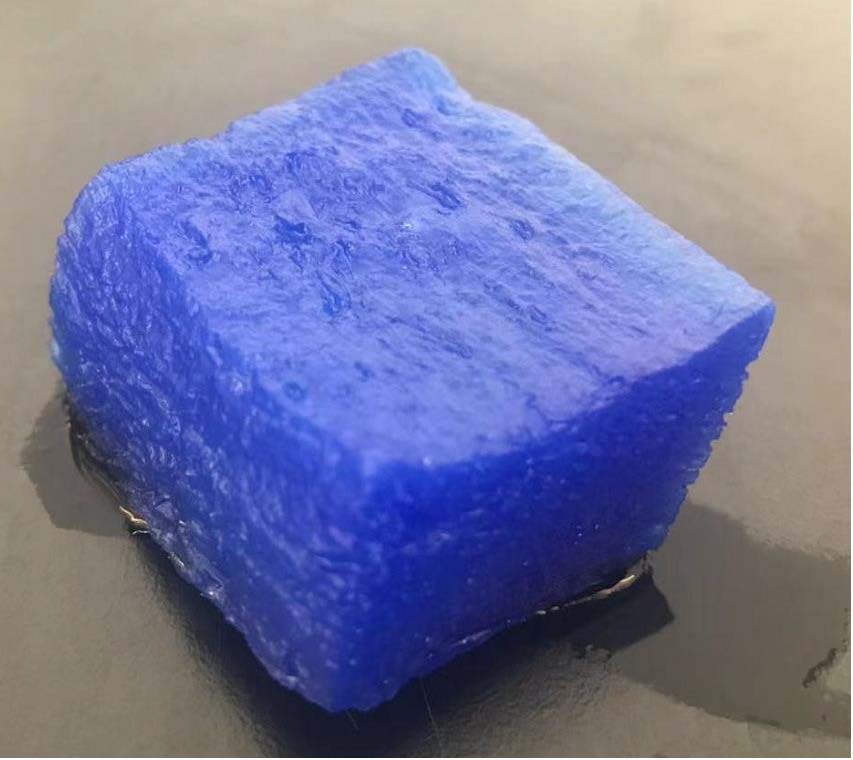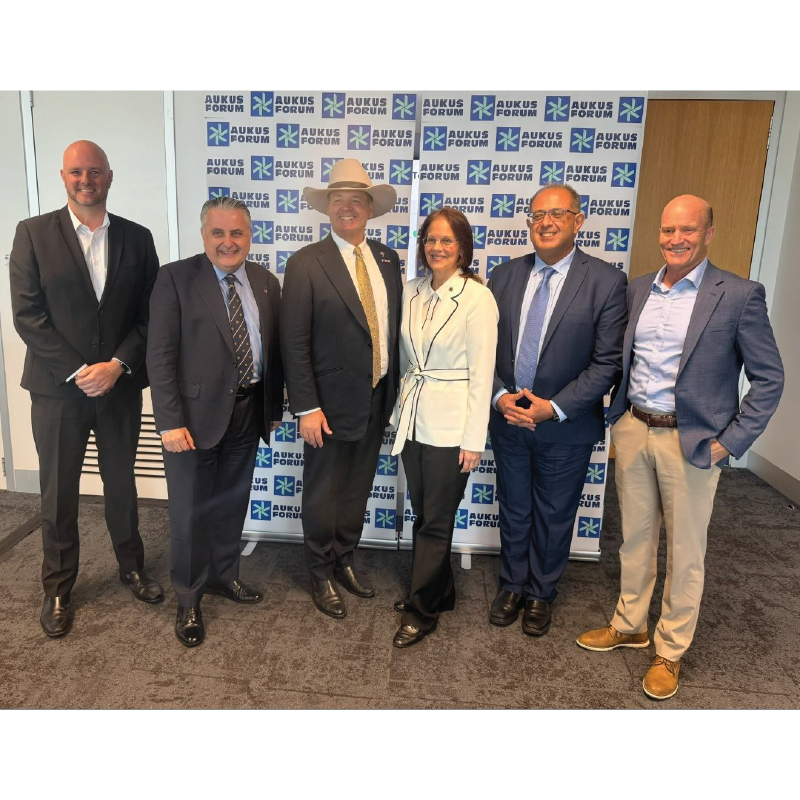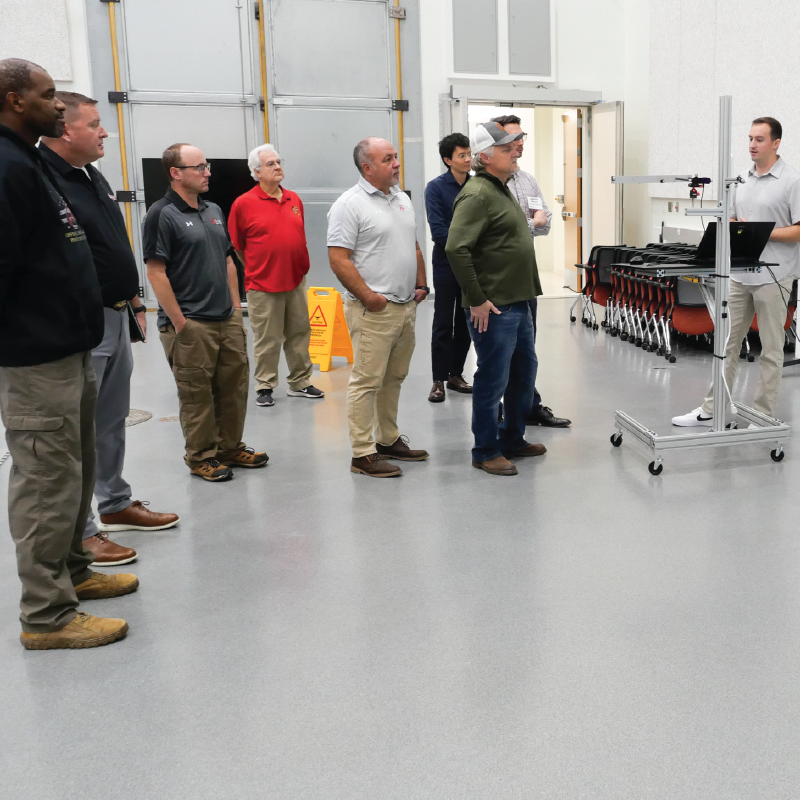News Story
Nature Names Sustainable Cooling a Key Technology to Watch in 2025
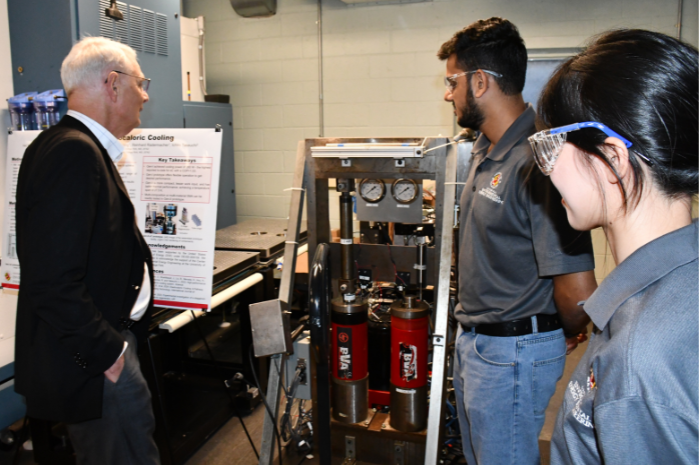
CEEE Director Reinhard Radermacher (left), who passed away in January, co-led a UMD team developing eco-friendly solid-state cooling technology; a prototype is pictured here. Researchers include graduate students Het Mevada and Boyang Liu.
The journal Nature has identified sustainable urban cooling – including UMD’s research on eco-friendly solid-state cooling – as one of seven technologies to watch in 2025.
The journal reports that rising global temperatures are leading to a growing demand for air conditioning, which “means more electricity will be consumed, and release of hydrofluorocarbon coolants — a potent class of greenhouse gases — will increase.” Sustainable cooling solutions are needed to stop this vicious cycle.
Nature highlights UMD’s research on climate-friendly elastocaloric cooling – a promising technology that relies on metals rather than traditional refrigerants, which are often environmentally harmful. Elastocaloric cooling takes advantage of the superelasticity of shape memory alloys that release heat when compressed and absorb heat when relaxed. The result is efficient cooling with zero direct global emissions. This innovative cooling solution was also named one of the top 10 breakthrough technologies of 2024 by the World Economic Forum.
The research is a collaboration between the Center for Environmental Energy Engineering (CEEE) and the Department of Materials Science and Engineering (MSE). The UMD research has been led by Ichiro Takeuchi, interim MSE chair; Yunho Hwang, CEEE co-director; and CEEE Director Reinhard Radermacher, who passed away in January, leaving behind a legacy of developing sustainable HVAC&R technologies.
Published February 7, 2025
